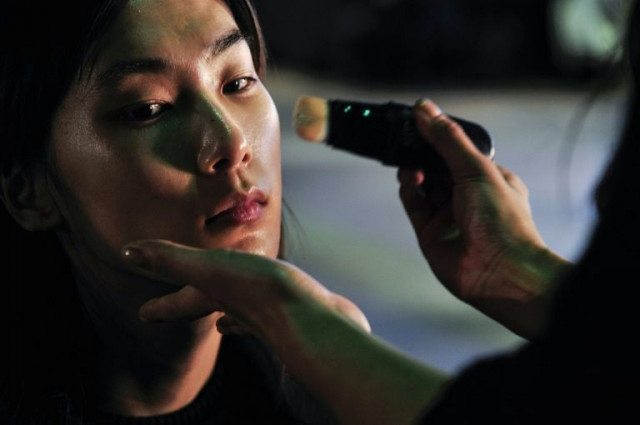Forever young: study uncovers protein that keeps skin youthful
The research is based on investigations using mice tails, which share many of the same characteristics as human skin

PHOTO: AFP
The prosaically named COL17A1 might not sound like a fountain of youth, but the new study suggests it does the heavy lifting when it comes to keeping skin intact and unimpaired.
The protein works by encouraging cell competition, a key process to maintain tissue fitness. That effectively "drives out" weaker cells while encouraging replication of stronger ones.
But ageing results in a depletion of COL17A1, as do familiar enemies of youthful skin, like UV radiation.
And when that happens, weaker cells replicate, leaving the skin thinner, more prone to damage and slower to heal.
The research published Thursday in the journal Nature is based on investigations using mice tails, which share many of the same characteristics as human skin.
5 ways to protect your hair and skin from pollution
After confirming the importance of COL17A1, the team decided to investigate whether they could stimulate the protein once it was depleted -- effectively looking for compounds that could kickstart the anti-ageing process in skin.
They isolated two chemical compounds -- Y27632 and apocynin -- and tested both on skin cells, with positive results.
"Application of these drugs to full-thickness skin wounds significantly promoted wound repair," the study said.
The two compounds point to ways of "facilitating skin regeneration and reducing skin ageing," the study added.
In a review of the study commissioned by Nature, two professors from the University of Colorado said cell competition had previously only been studied extensively in fruit flies.
The research "provides evidence that healthy cells in mammals can also efficiently repopulate adults tissues, replacing unfit or damaged cells," wrote professors Ganna Bilousova and James DeGregori.
And they said the research offered "proof-of-principle" that the two chemical compounds could combat ageing.
"Future studies are needed to determine the mechanisms of cell competition in other tissues, and to identify compounds capable of reversing ageing in other organs," they said.



















COMMENTS
Comments are moderated and generally will be posted if they are on-topic and not abusive.
For more information, please see our Comments FAQ